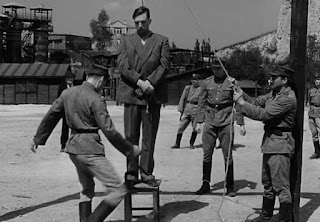"July Crisis" in progress
It was already mid-July 1914 and Austria had not sent Serbia any ultimatum and the feeling of crisis had begun to diminish. On July 16, in a talk in London about the international situation and the dangers of a "large military bonfire", writer Norman Angell said to a mostly socialist audience: "The new generation is, in my opinion, increasingly determined not to be victims of that supreme uselessness. ” read full dea
But while Norman Angell placed his faith in the "new generation", in Vienna the doubts of the old woman were dissipating. On July 14, the Austrian Council of Ministers had decided to present an ultimatum at the end of a week.
In London, two days later, the German ambassador in the capital of the United Kingdom, Prince Lichnowsky, commented with some filth in a letter addressed to the German Chancellor that the Austrian authorities were the only ones to blame for the murder of Franz Ferdinand, for having sent him to a "bomb throwing alley" in Sarajevo.
Even the Serbian Foreign Minister had sent a message to the Austrian Finance Minister in Vienna, with responsibilities in Bosnia-Herzegovina, telling him the visit was reckless.
But now all that belonged to the past: the highest authorities in Berlin were secretly informed of the date on which Serbia would be sent the ultimatum of Austria and no one protested. The German army hierarchy was ready for war.
On July 17, the Deputy Chief of the General Staff, General Waldersee, wrote from Berlin to Foreign Affairs Minister Von Jagow: “Here I am, ready to jump; in the General Staff we are all ready. Jagow, like the Kaiser, trusted Russia not to intervene. On July 18, he reported Lichnowsky in London: "The more determined Austria is and the more energy we put into supporting it, the sooner Russia will silence its protests. Sure they'll make a good mess in St. Petersburg, but at last Russia isn't ready for a war now.. ”
Source: "World War I" by Martin Gilbert











Comments
Post a Comment